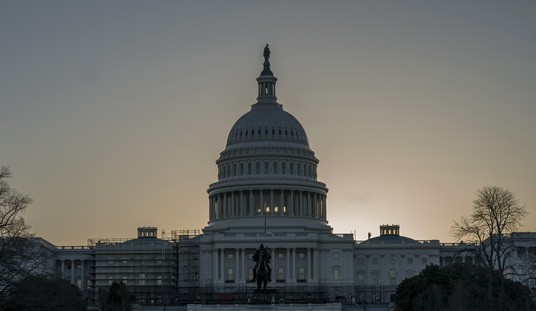On Tuesday, the Department of Justice and the Department of Homeland Security released a report that indicated roughly three out of four individuals “convicted of international terrorism-related charges between September 11, 2001 and December 31, 2016 are foreign-born individuals who entered the United States through our immigration system,” according to an official release from the White House. The report also indicates nearly 2000 individuals were removed by ICE due to national security concerns, and that 2017 saw 2.5K DHS run-ins with individuals traveling to the U.S. and known to be named on the terrorist watch list.
“This report reveals an indisputable sobering reality—our immigration system has undermined our national security and public safety,” said Attorney General Sessions. “And the information in this report is only the tip of the iceberg: we currently have terrorism-related investigations against thousands of people in the United States, including hundreds of people who came here as refugees. Our law enforcement professionals do amazing work, but it is simply not reasonable to keep asking them to risk their lives to enforce the law while we admit thousands every year without sufficient knowledge about their backgrounds. The pillars of President Trump’s immigration policy—securing our porous borders, moving to a merit-based immigration system that ends the use of diversity visas and chain migration, and enforcing our nation’s laws—will make their jobs easier and make the United States a safer place.”
Art Arthur, Resident Fellow in Law and Policy for the Center for Immigration Studies in Washington, DC writing for CSN News, notes that while the US is better poised to identify terrorist threats from individuals since the disaster of 9/11, many emerging efforts to tackle the problem are being stymied in federal courts.
Shortly after his inauguration, the president identified the need for better vetting and screening of foreign nationals coming to the United States, and put forth proposals to address that need, but many of those efforts have been blocked by federal courts. Lawyers and judges pointed to statements made by then-candidate Donald Trump to argue that the president’s proposals were motivated by improper animus. The facts disclosed by DHS make clear, however, that the president’s concerns are real.
As Secretary Nielsen stated:
“I think what we take directly away from the report is we need to continue to enhance our screening and vetting. But it also tells us we need to continually vet those who are here. We have examples unfortunately over the last decades of terrorist attacks from legal permanent residents and others who were naturalized. So we need to be able to continue up until the point they become a U.S. citizen, to continue to vet them to ensure they haven’t become radicalized.”
This last point bears emphasis. The process by which individuals become radicalized in the United States has been subject to much study and debate, but is still poorly understood. Until that process is more precisely identified, DHS must continue to be vigilant in its screening of aliens seeking benefits (including citizenship) in the United States.
That “improper animus” is, of course, charges of racism of the like that stemmed from the temporary travel ban executive order issued by Trump in the first weeks of his presidency that prohibited immigrants from known hostile nations from entering the U.S.
Despite this new report from DOJ and DHS, efforts continue to dispute the findings and disparage the report as part of a general “anti-immigration” stance emanating from the White House.
Trump’s statistics are misleading. That percentage is based on a list of 549 people, which experts say is flawed. First, the list excludes homegrown extremists, who have become the US’s biggest terror threat. Second, the vague term “terrorism-related charges” inflates numbers by including not just people who broke laws “directly related to international terrorism,” but others who were convicted of totally unrelated offenses, such as fraud or illegal immigration in the course of a terrorism-related investigation.
“’Terrorism-related’ is not a term that appears in the US criminal code,” said Alex Nowrasteh, an immigration policy analyst at the Cato Institute. “It’s pretty meaningless.”
With respect to the exclusion on the emerging threat of homegrown terrorism from the report, perhaps the DOJ numbers are an attempt to get a handle on one branch of the problem of terrorism — that is, the terrorism the U.S. allows in. There are doubtless efforts to deal with homegrown terrorists as part of dealing with the larger problem of terrorism.
That said, the report is without doubt intended to prop up the desire of the current administration to put an end to things like the hard-to-control chain migration system and provide justification for tighter border security. But calling those efforts “anti-immigration” rather than “pro-national security” might be a bit disingenuous.














Join the conversation as a VIP Member